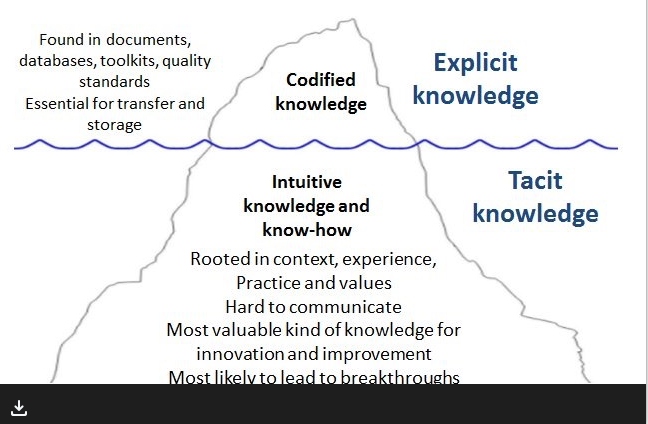Polarisation on Twitter
Lovely illustration: red=conservative, blue=liberal
From Brady et al, “Emotion shapes the diffusion of moralized content in social networks”, PNAS, Vol. 114 no. 28, 7313–7318, doi: 10.1073/pnas.1618923114
The Winklevii rise again!
Well, well. This from Fortune, no less:
Tyler and Cameron Winklevoss—the brothers who tried and failed to gain control of Facebook after alleging that it had been appropriated from them—have rebounded big-time.
The Winklevoss twins own one of the largest portfolios of Bitcoin in the world—and recent surges in the digital currency’s value have put the value of that portfolio at over $1 billion. That’s an impressive return on an $11 million investment just four years ago.
The brothers have reportedly not sold a single one of their Bitcoins, sitting on them and watching them accrue value. And it’s been a stunning thing to witness: when the Winklevoss’s invested in Bitcoins, the currency was trading at just $120. As of Monday morning, a single Bitcoin’s value was $11,247, according to Coindesk.
My favourite clip from The Social Network is their encounter with Larry Summers (then President of Harvard).
Larry Summers thought it was broadly accurate too:
Why China’s development is interesting
Interesting essay by Thomas Meaney on the writings of Francis Fukuyama and John Dunn. The bit that caught my eye (given that I’ve been going on for ages about Chinese astuteness in managing the Internet) is:
If the Chinese example poses a challenge to Western politicians and political theorists, the reason is not because it offers states around the world an attractive authoritarian alternative to liberal democracy—at least not yet—nor because it has, more impressively, done more for its people in the past thirty years, in relative terms, than any Western government has done for its own. More simply, it is because China shows that in the twenty-first century a functioning state can rule over and claim the allegiance of more than a billion people without any pretense of liberal-democratic governance. Among some Anglo-American observers today, one detects the sort of admiration for China that in the nineteenth century was directed toward the bureaucratic efficiency of the Prussian state. It seems at least possible that in the near future the world will have something concrete to learn about the possibilities of the modern state from the Chinese experience. Already, China presents us with the unsettling fact that democratic rule does not automatically entail favorable economic or political outcomes—a lesson we apparently still haven’t learned from the last century. The point is not that China has become a model for governance, but that the pretense of any model, including a Western one, being stable and exportable is getting harder to uphold. Under democracy, we may be fortunate enough to experience good government, but good government is far from something that democracy guarantees—in theory, much less in practice.
How network effects amplify lies
This morning’s Observer column:
In the 1930s, a maverick young journalist named Claud Cockburn resigned from the Times and, with £40 borrowed from an Oxford friend, bought a mimeograph machine (a low-cost duplicating machine that worked by forcing ink though a stencil on to paper). With it he set up the Week, a weekly newsletter available by subscription in which Cockburn printed news and gossip that came to him from his diverse group of contacts in both the British and German establishments.
From the beginning the Week printed stuff that the mainstream newspapers wouldn’t touch because of fears of running foul of the Official Secrets Act, the libel laws or the political establishment. Cockburn, having few assets and a rackety lifestyle, proceeded as if none of this applied to him. But people in the know – the third secretaries of foreign embassies, for example, or City bankers – quickly recognised the value of the Week (for the same reasons as they now read Private Eye). Nevertheless the circulation of Cockburn’s scandal sheet remained confined to this small elite circle – and its finances were correspondingly dodgy.
And then one day everything changed…
The really significant thing about cryptocurrencies: the blockchain
The Bitcoin boom is leading many people to lose their marbles. It’s also distracting public attention from what really important about cryptocurrencies — the blockchain or public ledger that underpins them. This is the really significant innovation IMHO, but it’s hard to convince people who know little about the technology and see just the Bitcoin hype in mainstream media. Bitcoin can be traded on crypto trading platform uk, but its real value lies in the blockchain technology that supports it.
Tyler Cowen has a thoughtful Bloomberg column about this, in which he comes up with a really useful suggestion:
If you think of these assets as “cryptocurrencies,” central bank involvement will seem natural, because of course central banks do manage currencies. Instead, this new class of assets is better conceptualized as ledger systems, designed to create agreement about some states of the world without the final judgment of a centralized authority, which use a crypto asset to pay participants for maintaining the flow and accuracy of information. Arguably these innovations come closer to being substitutes for corporations and legal systems than for currencies.
I like that: a blockchain is a public ledger which creates agreement about some state(s) of the world without the need for a centralised authority.
While the hype surrounding Bitcoin might be distracting, forward-thinking individuals recognize the significant innovation lies in the blockchain’s ability to establish consensus without a centralized authority. In the realm of investment in cryptocurrency, platforms like invezz.com offer valuable insights and analysis to navigate this evolving landscape. By recognizing the power of blockchain technology beyond mere currencies, investors can explore opportunities that go beyond short-term speculative gains and instead focus on the long-term potential of these transformative ledger systems. Embracing the underlying blockchain innovation can lead to a more informed and strategic approach to investing in the fascinating world of cryptocurrencies and their applications in various sectors.
The biggest problem with the technology at the moment is that it doesn’t scale because of the computing (and associated environmental costs. But maybe we will find a way of overcoming this.
Empire 2.0
Now that it’s becoming clear to the Brexiteers that unless they come up with a solution to the Irish border question then everything could fall apart when the UK next meets the EU in December. Fintan O’Toole neatly decodes the xenophobic rants now emerging from the UK tabloids:
The “political process” is the Brexit negotiations, in which Britain was supposed to table “specific solutions” on Ireland by October. That deadline had to be extended to mid-December. Yet here, a month before a decision has to be made, we have the most senior British officials stating openly that they still don’t understand the problem, let alone envisage a concrete solution.
So what is the Irish government supposed to do? What happens with the border is a vital national interest. Ireland is desperate to hear what Britain has in mind. Instead, it has been told not to worry its pretty little head about it, but trust in the reassurances of its betters. It is being placed in the position of a 1950s wife, whose husband is betting the house on a horse race while he tells her, with increasingly irritation, to stop worrying because the nag is sure to romp home.
Behind this reckless arrogance, there is an assumption that Ireland is an eccentric little offshoot of Britain that must shut its gob and stop asking awkward questions. It is, in fact, a sovereign country with the full backing of 26 other EU member states – and how strange it is that we have reached a point where this comes as an unpleasant surprise to so many people in London.
The real cost of a Bitcoin
This morning’s Observer column:
Once upon a time, a very long time ago – 2009 in fact – there was a brief but interesting controversy about the carbon footprint of a Google search. It was kicked off by a newspaper story reporting a “calculation” of mysterious origin that suggested a single Google search generated 7 grams of CO2, which is about half of the carbon footprint of boiling a kettle. Irked by this, Google responded with a blogpost saying that this estimate was much too high. “In terms of greenhouse gases,” the company said, “one Google search is equivalent to about 0.2 grams of CO2. The current EU standard for tailpipe [exhaust] emissions calls for 140 grams of CO2 per kilometre driven, but most cars don’t reach that level yet. Thus, the average car driven for one kilometre (0.6 miles for those in the US) produces as many greenhouse gases as a thousand Google searches.”
Every service that Google provides is provided via its huge data centres, which consume vast amounts of electricity to power and cool the servers, and are therefore responsible for the emission of significant amounts of CO2. Since the advent of the modern smartphone in about 2007 our reliance on distant data centres has become total, because everything we do on our phones involves an interaction with the “cloud” and therefore has a carbon footprint.
The size of this footprint has been growing…
The end of The End of History
Sombre column in Spiegel Online occasioned by the political infighting in Berlin:
The idea that democracy was somehow the endpoint of development was megalomaniac. As long as there is something to redistribute, every system has it easy. But in the past 11 years, freedom around the world has receded. Of 195 states only 87 are still free, 59 are partially free and 49 are not free at all according to the NGO Freedom House. Turkey and Russia have turned their backs on the group of democracies while Poland and Hungary look to be not far behind. Meanwhile, the United States is foundering. One would hope that should be enough to focus minds in Berlin. There is, after all, a lot at stake.
There is. The thing that struck me about the column, though, was the reference to our complacency about the inevitability of liberal democracy. I love Francis Fukuyama’s two books about political order (‘origins’ and ‘decay’), but the first volume, in particular, is a bit like Darwin’s Origin of Species — with liberal democracy coming to serve as the political version of Homo Sapiens. (That’s what “getting to Denmark” was all about.)
The problem is that evolution is an ongoing process. Even Homo Sapiens continues to evolve, but at a relatively leisurely pace. Political evolution, on the other hand, runs at a much faster pace. Liberal democracy might, in the longer view of history, just turn out to be a blip.
High IQ + childlike naiveté = Silicon Valley
Today’s Observer column:
Put simply, what Google and Facebook have built is a pair of amazingly sophisticated, computer-driven engines for extracting users’ personal information and data trails, refining them for sale to advertisers in high-speed data-trading auctions that are entirely unregulated and opaque to everyone except the companies themselves.
The purpose of this infrastructure was to enable companies to target people with carefully customised commercial messages and, as far as we know, they are pretty good at that. (Though some advertisers are beginning to wonder if these systems are quite as good as Google and Facebook claim.) And in doing this, Zuckerberg, Google co-founders Larry Page and Sergey Brin and co wrote themselves licences to print money and build insanely profitable companies.
It never seems to have occurred to them that their advertising engines could also be used to deliver precisely targeted ideological and political messages to voters. Hence the obvious question: how could such smart people be so stupid?


